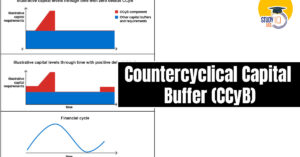Table of Contents
Context
A nine-judge Bench of the Supreme Court of India (SC), in an 8:1 decision, ruled that states have the authority to impose taxes not only on alcoholic beverages but also on industrial alcohol.
Overlapping Constitutional Entries
- The dispute involved two entries in the Seventh Schedule of the Constitution.
- Entry 8 of List II (State List): Allows states to regulate “intoxicating liquors,” including production, manufacture, transport and sale.
- Entry 52 of List I (Union List): Allows the Centre to regulate industries declared by Parliament as expedient for public interest.
- According to the central government, industrial alcohol falls under its jurisdiction due to its inclusion in the Industries (Development and Regulation) Act, 1951.
Ruling of Supreme Court
- The Supreme court has ruled in favour of states’ rights to regulate industrial alcohol.
- It overturned the 1990 judgement from the Synthetics & Chemicals Ltd. v State of Uttar Pradesh case, which limited state authority to potable alcohol only.
- Interpretation of “Intoxicating Liquor”: Supreme held that “intoxicating liquor” should include all forms of alcohol, even industrial alcohol, as it can be misused for illegal liquor production.
Doctrine of Repugnancy |
| ● The Doctrine of Repugnancy refers to the legal principle that addresses conflicts between laws made by different legislative bodies in federal systems.
● Seventh Schedule of the Constitution divides legislative powers between the Union (Centre) and the States, categorising subjects into three lists: ○ Union List: Where only the Centre can legislate. ○ State List: Where only the State Legislatures can legislate. ○ Concurrent List: Both the Centre and States can legislate, but if a conflict arises, the Doctrine of Repugnancy helps to resolve it. ● Article 254: ○ If there is a conflict between central and state laws on a subject listed in the Concurrent List, the central law will prevail and the state law will be considered void to the extent of its inconsistency. ○ However, if the state law has received the President’s assent, it can prevail in that state, even if it contradicts the central law. But the Parliament still holds the power to override such a state law by enacting a new law. |


 5 Years of SVAMITVA Scheme and Its Benef...
5 Years of SVAMITVA Scheme and Its Benef...
 Places in News for UPSC 2025 for Prelims...
Places in News for UPSC 2025 for Prelims...
 Countercyclical Capital Buffer (CCyB): P...
Countercyclical Capital Buffer (CCyB): P...





















